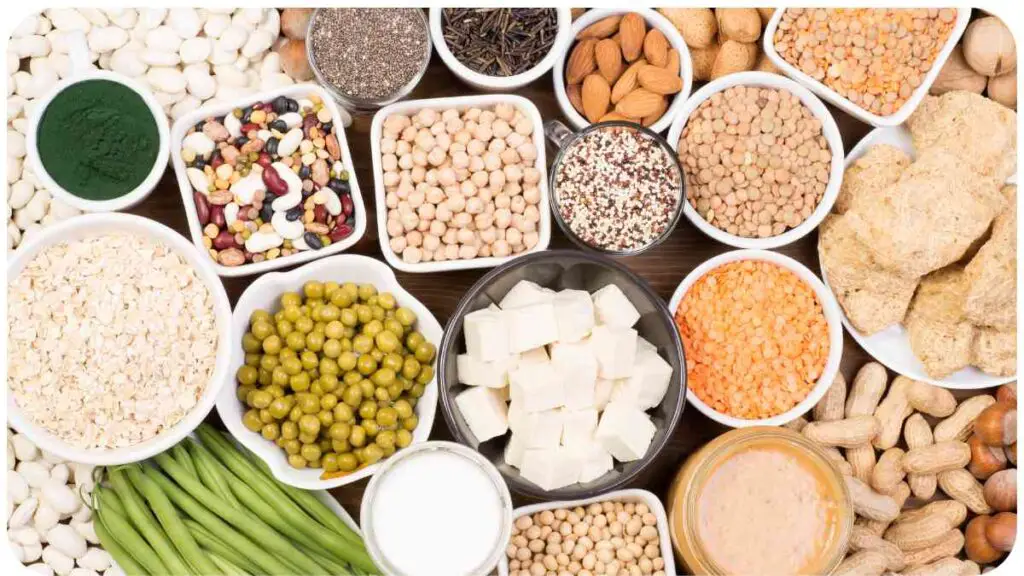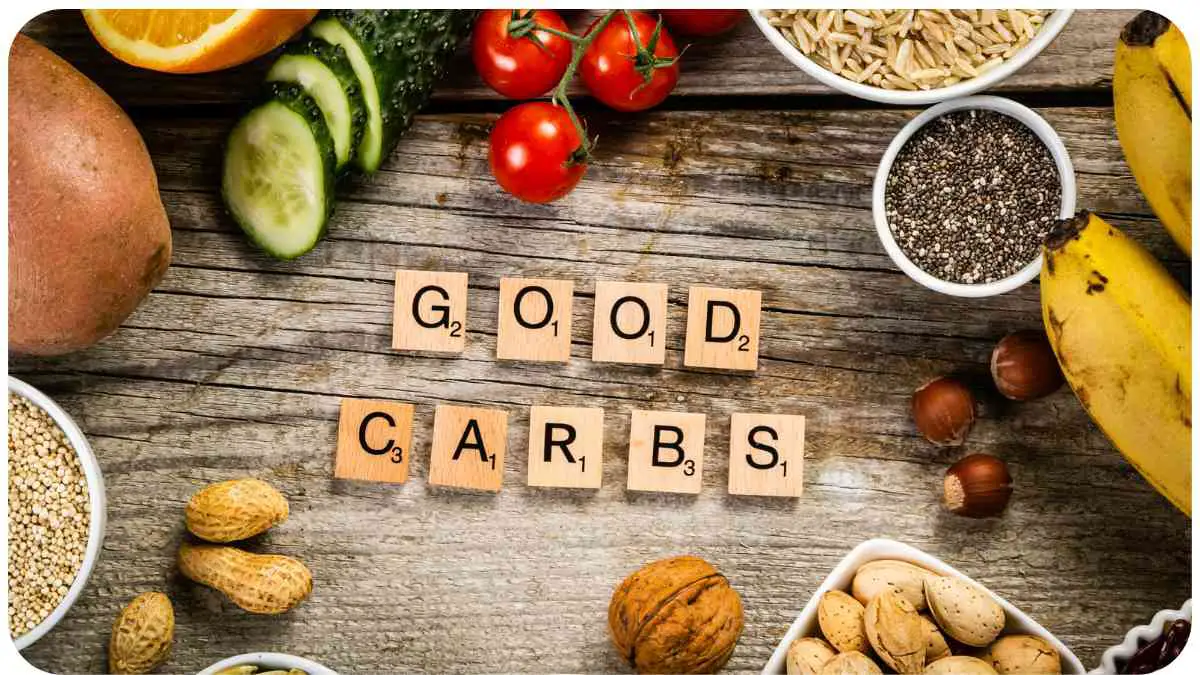Starting a vegan diet can be a transformative journey for both your health and the environment. However, it’s important to be well-informed before embarking on this lifestyle. In this article, we will delve into the key aspects you should know before starting a vegan diet.
From the basic definition of a vegan diet to the benefits, risks, and practical considerations, we’ll cover it all. Additionally, we’ll provide expert insights, personal anecdotes, and useful tips to guide you on your vegan journey.
| Takeaways |
| The vegan diet is a sustainable and ethical lifestyle choice. |
| Proper planning is key to meeting nutrient needs on a vegan diet. |
| Plant-based protein sources include legumes, tofu, and tempeh. |
| Vegan substitutes can replace animal products in various dishes. |
| Navigating social situations may require open communication and preparation. |
| Veganism has positive environmental impacts, reducing carbon footprint. |
| Gradual transition and education help with the adoption of a vegan lifestyle. |
| Considerations like supplementation and portion control are important. |
| Vegan diets can be suitable for children, athletes, and pregnant women with proper planning. |
What Is a Vegan Diet?
A vegan diet is a plant-based eating plan that excludes all animal products, including meat, poultry, fish, dairy, eggs, honey, and other animal-derived ingredients. It focuses on consuming fruits, vegetables, legumes, grains, nuts, and seeds. Vegans not only avoid animal products in their diets but also in other aspects of their lifestyle, such as clothing and personal care products.
The rise of plant-based eating has brought a revolution in dietary habits. Incorporating more veggies into your diet is crucial for a balanced and healthy lifestyle. Learn how to incorporate more veggies and embrace the benefits of plant-based eating.
Benefits of a Vegan Diet

Adopting a vegan diet can offer numerous benefits for your health, the environment, and animal welfare. Research suggests that a well-planned vegan diet can:
- Support heart health
- Reduce the risk of chronic diseases like diabetes and certain types of cancer
- Aid in weight management
- Promote a more sustainable food system and reduce greenhouse gas emissions
- Alleviate animal suffering
By choosing a vegan lifestyle, you contribute to a healthier planet and a compassionate society.
Risks and Considerations
While a vegan diet can provide a wide range of health benefits, it’s essential to be aware of potential nutritional deficiencies. The following nutrients deserve special attention:
- Vitamin B12: Found mainly in animal-based foods, including meat, dairy, and eggs, it’s crucial for energy production and neurological health. Vegans must ensure an adequate intake through fortified foods or supplements.
- Iron: Plant-based iron (non-heme iron) is less readily absorbed by the body, so vegans should consume iron-rich plant foods like legumes, whole grains, and leafy greens in combination with vitamin C sources to enhance absorption.
- Omega-3 fatty acids: While most plant-based diets offer plenty of omega-6 fats, it’s important to include good sources of omega-3s, such as chia seeds, flaxseeds, and walnuts, or consider a microalgae-based omega-3 supplement.
- Calcium: Vegans can obtain calcium from fortified plant-based milk products, tofu, leafy greens, and calcium-set tofu. Ensuring sufficient vitamin D intake and physical activity aids calcium absorption.
- Iodine: Sea vegetables like nori and iodized salt are good sources of iodine, which is essential for thyroid function. Vegans should monitor their intake and consider supplementation if necessary.
- Zinc: Important for immune function and wound healing, zinc can be found in legumes, whole grains, seeds, and nuts. To enhance absorption, it’s recommended to soak, sprout, or ferment these foods.
To mitigate these risks, it is advisable to consult with a healthcare professional or registered dietitian before embarking on a vegan diet.
Time-saving kitchen tools are essential for every home cook. Discover the must-have gadgets that can simplify your cooking routine and save you time in the kitchen. Check out these time-saving kitchen tools and elevate your cooking experience like a pro.
Essential Nutrients on a Vegan Diet
A well-planned vegan diet can adequately meet your nutritional needs. Here is a comparison table of essential nutrients commonly found in both animal and plant-based sources:
| Nutrient | Animal Sources | Plant Sources |
| Protein | Meat, poultry, fish | Legumes, tofu, tempeh |
| Vitamin B12 | Meat, dairy, eggs | Fortified plant milks, nutritional yeast, supplements |
| Iron | Red meat, liver | Legumes, spinach, tofu, fortified cereals |
| Omega-3 fats | Fatty fish, fish oil | Chia seeds, flaxseeds, walnuts, microalgae supplements |
| Calcium | Dairy products | Fortified plant milks, leafy greens, sesame seeds |
| Iodine | Seafood, dairy | Seaweed, iodized salt |
| Zinc | Meat, seafood | Legumes, whole grains, seeds, nuts |
Remember, including a variety of plant-based foods in your diet can help ensure you get all the necessary nutrients.
Planning Your Vegan Meals
To successfully transition to a vegan diet, it’s crucial to plan your meals in advance. Here’s a sample vegan meal plan to give you an idea of how to structure your meals:
| Time | Meal |
| Breakfast | Overnight oats topped with berries and almond butter |
| Snack | Apple slices with peanut butter |
| Lunch | Quinoa salad with mixed vegetables and chickpeas |
| Snack | Hummus and carrot sticks |
| Dinner | Lentil curry with brown rice |
| Dessert | Vegan chocolate avocado mousse |
Feel free to personalize this meal plan according to your preferences and dietary needs. Experiment with different recipes and ingredients to keep your meals interesting and flavorful.
The art of fermentation offers a unique way to preserve and enhance the flavors of foods like kimchi and kombucha. Learn how to master the fermentation process and make your own delicious creations. Dive into the world of fermentation with this guide to making your own kimchi and kombucha
Protein Sources for Vegans
Contrary to common misconceptions, vegans can easily meet their protein needs by incorporating a variety of plant-based protein sources into their diet. Here’s a table highlighting some excellent plant-based protein options:
| Protein Source | Protein Content (per 100g) |
| Tempeh | 19g |
| Lentils | 9g |
| Chickpeas | 19g |
| Quinoa | 4g |
| Tofu | 8g |
| Hemp Seeds | 31g |
| Almonds | 21g |
| Black Beans | 21g |
| Edamame | 11g |
| Peanut Butter | 25g |
Including a variety of these protein-rich plant foods in your diet will ensure you meet your daily protein requirements.
Vegan Substitutes for Animal Products
Transitioning to a vegan lifestyle often involves finding suitable substitutes for common animal products. Here’s a comparison table of some popular vegan substitutes:
| Animal Product | Vegan Substitute |
| Cow’s Milk | Almond milk, soy milk |
| Cheese | Nut-based cheese, nutritional yeast |
| Eggs | Tofu scramble, chickpea flour |
| Butter | Vegan margarine, coconut oil |
| Meat | Plant-based meat alternatives |
| Honey | Maple syrup, agave nectar |
| Gelatin | Agar-agar |
These vegan substitutes offer similar flavors and textures, allowing you to enjoy your favorite dishes while aligning with your values.
Embarking on a plant-based diet comes with numerous benefits for your health and the environment. Discover the 15 undeniable advantages of adopting a plant-based lifestyle. Explore the myriad benefits of a plant-based diet and make a positive impact on your well-being and the planet.
Navigating Social Situations as a Vegan

Being vegan in social settings can sometimes be challenging, but with a positive mindset and good communication, it can become easier. Here are a few tips to navigate social situations as a vegan:
- Be prepared: If you’re attending an event or gathering, let the host know about your dietary preferences in advance. Offer to bring a vegan dish to share so that you have something to eat.
- Educate and inform: Approach conversations about your vegan lifestyle with an open and non-judgmental attitude. Share your reasons for going vegan and the positive impact it has on your health, the environment, and animal welfare. Encourage understanding and inspire others to try plant-based options.
- Find vegan-friendly restaurants: When dining out with friends or family, suggest restaurants that offer vegan options. Many establishments now have plant-based alternatives on their menus, making it easier to find suitable choices for everyone.
- Explore new recipes: Expand your culinary horizons by experimenting with vegan recipes at home. Invite friends over for a vegan cooking night and showcase the delicious flavors and variety that a plant-based diet can offer.
Veganism and the Environment
Choosing a vegan diet can have a significant positive impact on the environment. Animal agriculture is a major contributor to greenhouse gas emissions, deforestation, and water pollution. By going vegan, you reduce your carbon footprint and conserve natural resources.
Additionally, plant-based diets require fewer resources, such as land and water, compared to conventional animal-based diets. Incorporating locally sourced and seasonal produce into your meals further supports sustainable food systems.
Planning to start a vegan diet but need some guidance? Get all the essential information you need before you begin your vegan journey. Equip yourself with knowledge by exploring this comprehensive guide on what you need to know before starting a vegan diet.
Transitioning to a Vegan Lifestyle
Transitioning to a vegan lifestyle is a journey that can take time. Here are some tips to help you make a smooth transition:
- Start gradually: Gradually eliminate animal products from your diet rather than making an abrupt change. Begin by reducing your consumption of meat, dairy, and eggs, and introduce more plant-based alternatives.
- Educate yourself: Learn about the nutritional aspects of a vegan diet, including the essential nutrients you need and suitable plant-based sources. Understanding the science behind veganism can help you make informed choices.
- Seek support: Connect with the vegan community, both online and offline. Participate in vegan forums, join social media groups, and attend vegan potlucks or events. The support and shared experiences will make your transition easier.
- Be kind to yourself: Embracing a vegan lifestyle is a journey, and it’s essential to be compassionate towards yourself. Allow for mistakes and learn from them. Focus on progress rather than perfection.
Tips for Maintaining a Healthy Vegan Diet
To ensure you maintain a healthy and balanced vegan diet, consider the following tips:
Eat a variety of whole foods: Incorporate a wide range of fruits, vegetables, whole grains, legumes, nuts, and seeds into your meals. This will provide you with a diverse array of nutrients.
Pay attention to portion sizes: While plant-based foods are generally healthy, it’s important to consume them in appropriate amounts to meet your calorie needs and prevent overeating.
Stay hydrated: Drink plenty of water throughout the day to maintain optimal hydration.
Include sources of healthy fats: Incorporate foods rich in healthy fats, such as avocados, nuts, and seeds, into your meals. These fats are important for overall health and absorption of fat-soluble vitamins.
Read food labels: When buying packaged foods, read the ingredient lists carefully to check for any animal-derived components. Look out for hidden ingredients like whey powder, gelatin, or honey.
Meal prep and plan ahead: Taking time to meal prep and plan your meals in advance can save you time and ensure you have nutritious options readily available. This can help prevent impulse food choices.
Consider supplementation: While a well-planned vegan diet can meet most nutrient needs, it’s wise to consider supplementation for critical nutrients like vitamin B12, vitamin D, and omega-3 fatty acids. Consult with a healthcare professional for personalized advice.
Listen to your body: Pay attention to how your body feels and adjust your diet as needed. If you notice any deficiencies or changes, consult with a registered dietitian to ensure you are meeting your nutritional requirements.
Common Myths About Veganism
Veganism is sometimes subject to misconceptions and myths. Let’s address and debunk a few common ones:
- Myth: Vegan diets lack protein. Reality: Plant-based diets can provide all essential amino acids through a varied diet that includes legumes, grains, and nuts.
- Myth: Vegan diets are deficient in essential nutrients, like iron and calcium. Reality: With proper planning, plant-based diets can meet these nutrient requirements. However, attention should be given to ensure adequate intake.
- Myth: Vegan diets are expensive. Reality: Plant-based staples like legumes, whole grains, and seasonal produce are often more cost-effective than animal products.
- Myth: Vegan diets are tasteless and boring. Reality: Plant-based diets offer a wide range of flavors, textures, and culinary possibilities. Experiment with different spices, herbs, and recipes to discover delightful vegan meals.
FAQs About Vegan Diets
Here are a few frequently asked questions about vegan diets:
| Question | Answer |
| Can children follow a vegan diet? | Yes, a properly planned vegan diet can provide all the necessary nutrients for children’s growth and development. Consult with a pediatrician or registered dietitian for guidance. |
| Is it possible to build muscle on a vegan diet? | Absolutely! Plant-based diets can provide ample protein for muscle growth. Adequate calorie intake, along with appropriate strength training, is crucial for muscle development. |
| Can I get enough calcium without consuming dairy? | Yes, there are various plant-based sources of calcium, such as fortified plant milks, leafy greens, and sesame seeds. Ensuring sufficient vitamin D intake and physical activity aids calcium absorption. |
| Can a vegan diet be suitable for athletes? | Yes, many athletes follow a vegan diet and excel in their respective sports. Proper meal planning to meet energy and nutrient demands is essential. Consult with a sports dietitian to optimize your athletic performance. |
Conclusion
Starting a vegan diet can have profound benefits for your health, the environment, and animal welfare. Understanding the basics of a vegan diet, including nutrient considerations, meal planning, and navigating social situations, is essential for a successful transition. By incorporating a variety of plant-based foods, being mindful of essential nutrients, and seeking support when needed, you can thrive on a vegan diet. Remember, everyone’s journey is unique, so listen to your body, make informed choices, and enjoy the many benefits of a compassionate and sustainable lifestyle.
Further Reading
Here are some additional resources to learn more about veganism and starting a vegan diet:
- 12 Things You Need to Know Before Going Vegan: This article from Health.com provides helpful insights and tips for those considering a vegan lifestyle, covering various aspects such as nutrition and practical advice.
- The 14 Things You Need to Know Before You Go Vegan: The Guardian offers a comprehensive list of important factors to consider before transitioning to a vegan diet, including ethical, environmental, and health considerations.
- What is a Vegan Diet? How to Get Started: CNET’s guide provides an overview of veganism, explaining the benefits, potential challenges, and steps to get started on a vegan diet.
FAQs
Can a vegan diet provide all necessary nutrients?
Vegan diets can provide all essential nutrients if properly planned. It’s important to ensure sufficient intake of protein, iron, vitamin B12, omega-3 fatty acids, calcium, and other critical nutrients.
Where can I get protein on a vegan diet?
Plant-based protein sources include legumes, tofu, tempeh, seitan, quinoa, lentils, chickpeas, and other beans. Combining different protein sources throughout the day helps ensure adequate protein intake.
How can I ensure I get enough vitamin B12 as a vegan?
Vitamin B12 is primarily found in animal-derived foods, but vegans can obtain it through fortified plant milks, nutritional yeast, B12 supplements, or fortified breakfast cereals.
Are vegan diets suitable for children and pregnant women?
With proper planning and attention to key nutrients, vegan diets can be suitable for children and pregnant women. However, consultation with healthcare professionals is advised to ensure all nutrient needs are met.
Can a vegan diet help with weight loss?
A well-planned vegan diet that focuses on whole, plant-based foods can support weight loss due to its typically high fiber content and lower caloric density. However, the total caloric intake still plays a role in weight management.

Hi, I’m Hellen James! I’m a professional chef who has been cooking for over 12 years. In my career, I’ve worked at some of the world’s most prestigious hotels and restaurants. My expertise lies in creating recipes that are simple but delicious, and I love to experiment with new ingredients and techniques. I started this blog because I want to share my passion for cooking with everyone who loves food as much as I do.


